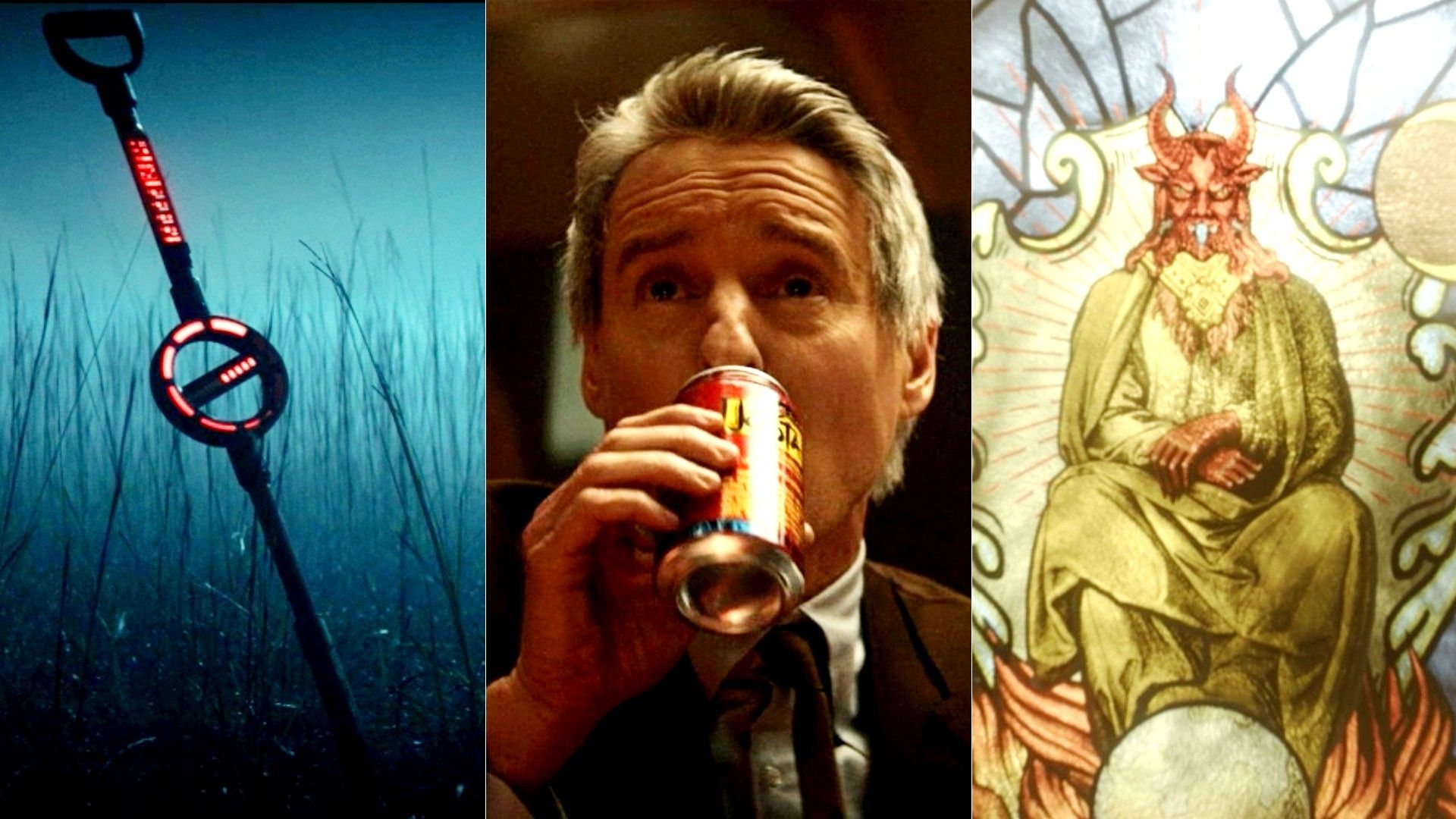
The premiere episode of Loki is burdened with glorious Marvel Easter eggs, from potential future villain teases to skulking Skrulls. Even before the considerable success enjoyed by WandaVision and Falcon & The Winter Soldier, MCU fans were eagerly anticipating Tom Hiddleston's return as the God of Mischief. Now blessed with his own Disney+ solo series, Loki has all of time and space to bother, and the premiere wastes little time throwing Hiddleston from the Avengers' frying pan into the TVA's fire.
After using the Tesseract to escape The Avengers in Avengers: Endgame, Loki is swiftly picked up by the Time Variance Authority - a seemingly omniscient organization overseeing the entirety of time and space. Evidently not ones to take prisoners, Loki's fate at the TVA looks grim, but Owen Wilson's Major Mobius intervenes, handing the silver-tongued variant a reprieve. In the opening episode, Mobius successfully digs to the root of Loki's dastardly ways, breaking him down to (presumably) build him back up, all with the aim of enlisting Loki's services as an ally to hunt down an especially vicious variant murdering the TVA's Minute Men.
Loki's premiere is predictably heavy with exposition, and relatively limited in scope, mostly taking place within the walls of TVA HQ. Nevertheless, Michael Waldron (creator) and Kate Herron (director) pepper the 50-minute installment with an array of references to the Marvel comics, MCU history callbacks, and hints of the multiverse madness to come. Here's every Easter egg we discovered in Loki's "Glorious Purpose."
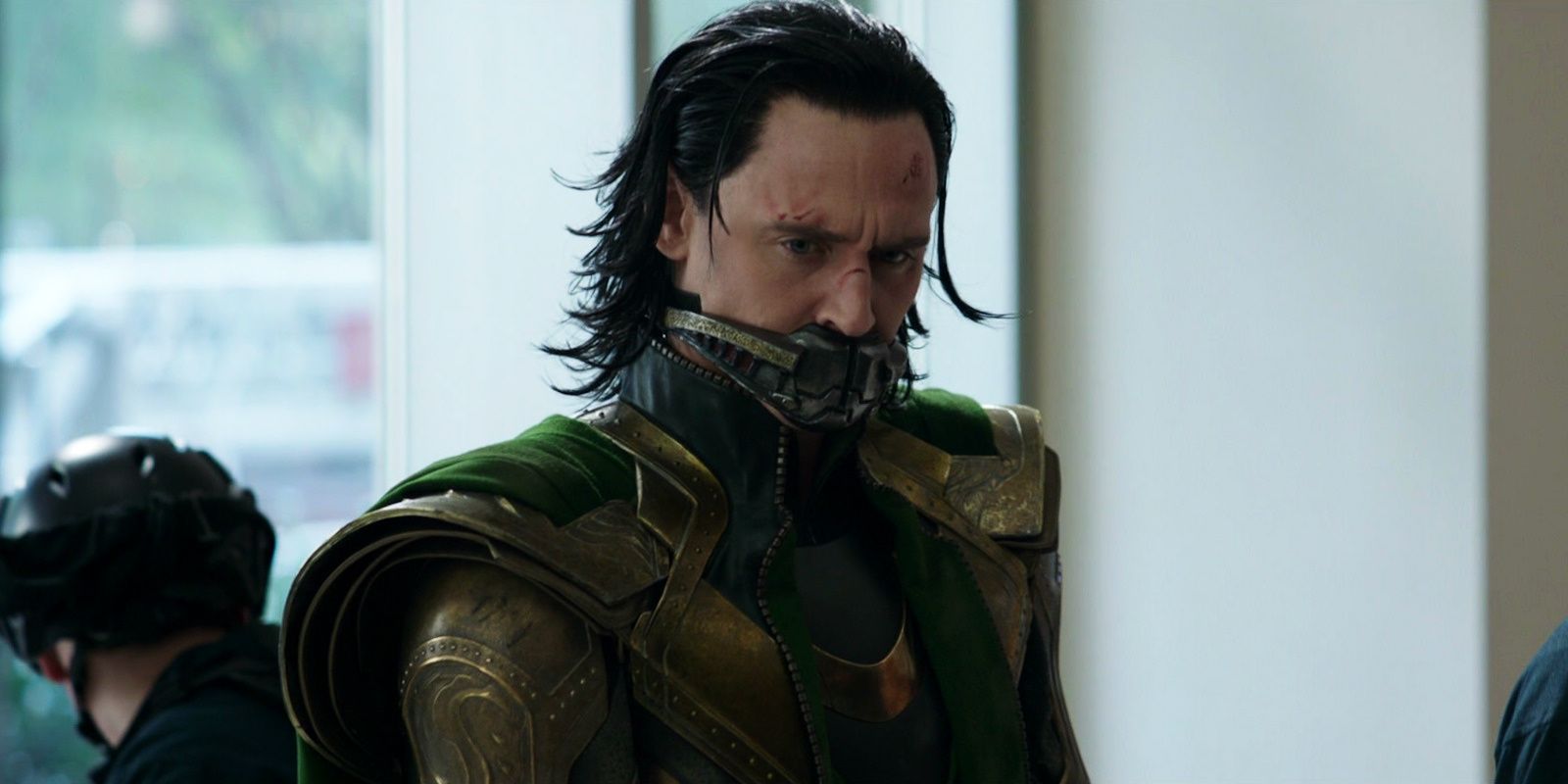
Loki's introductory scene is somewhat of an Easter egg itself, retelling the famous Tesseract heist from Avengers: Endgame. Much of the footage here derives straight from the 2019 box office behemoth, meaning no other MCU stars filmed additional footage or recorded new dialogue especially for Loki. With that said, a few extra Tom Hiddleston moments are spliced into the existing footage to show events entirely from Loki's point of view. The villain's Steve Rogers "search and rescue" gag is zoomed-in, and there's a closer shot of Loki waving goodbye to Hulk in the elevator, as well as fresh reaction shots during the Stark scuffle in the lobby.
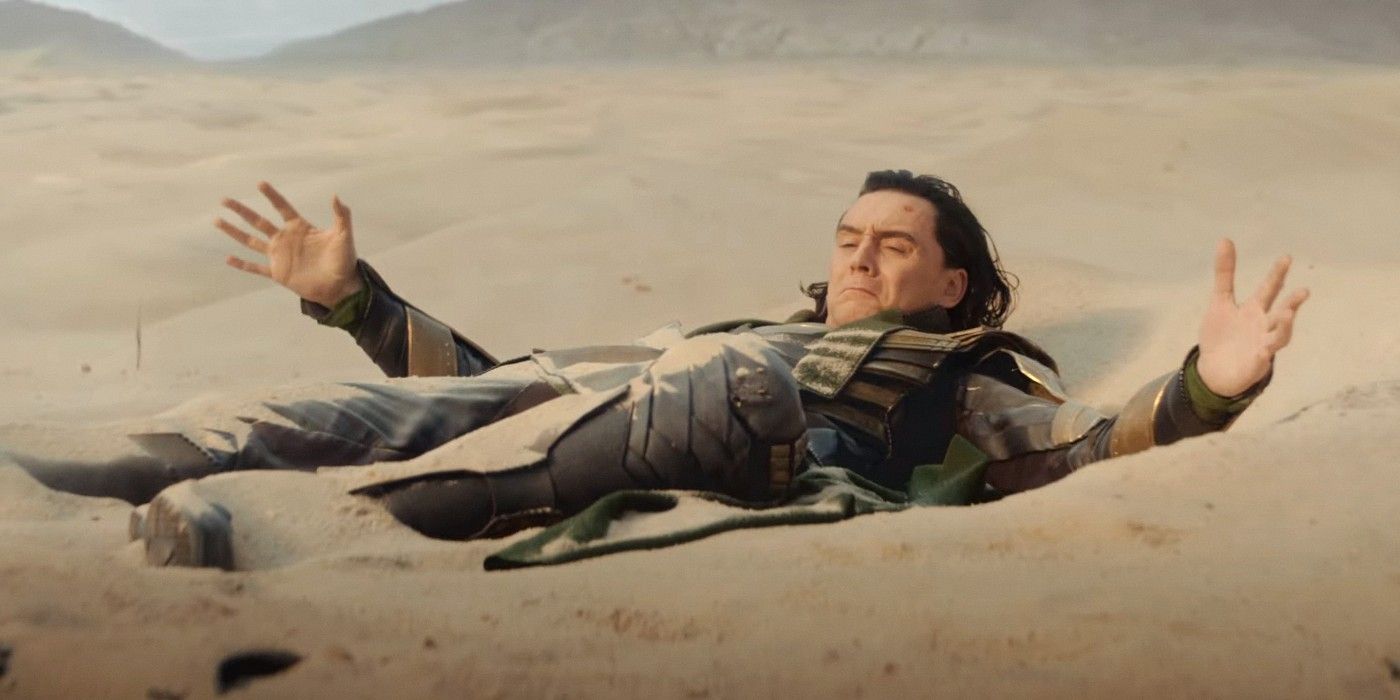
After commandeering the Tesseract in New York, Loki finds himself falling from the sky above Mongolia's Gobi Desert, landing unceremoniously in the sand below, and this scene might trigger a sense of déjà vu for longtime MCU fans. In 2008's Iron Man, Tony Stark escapes capture by creating a rudimentary suit of hi-tech armor. Flying to safety, the genius-billionaire-playboy-philanthropist also lands roughly in a remote desert. There's a symbolic correlation in how Iron Man marked the beginning of the MCU, while Loki is now ushering in a whole new chapter, and both begin with their protagonists in matching predicaments. Both characters also crash while evading incarceration, though only Loki immediately finds himself in chains once again.
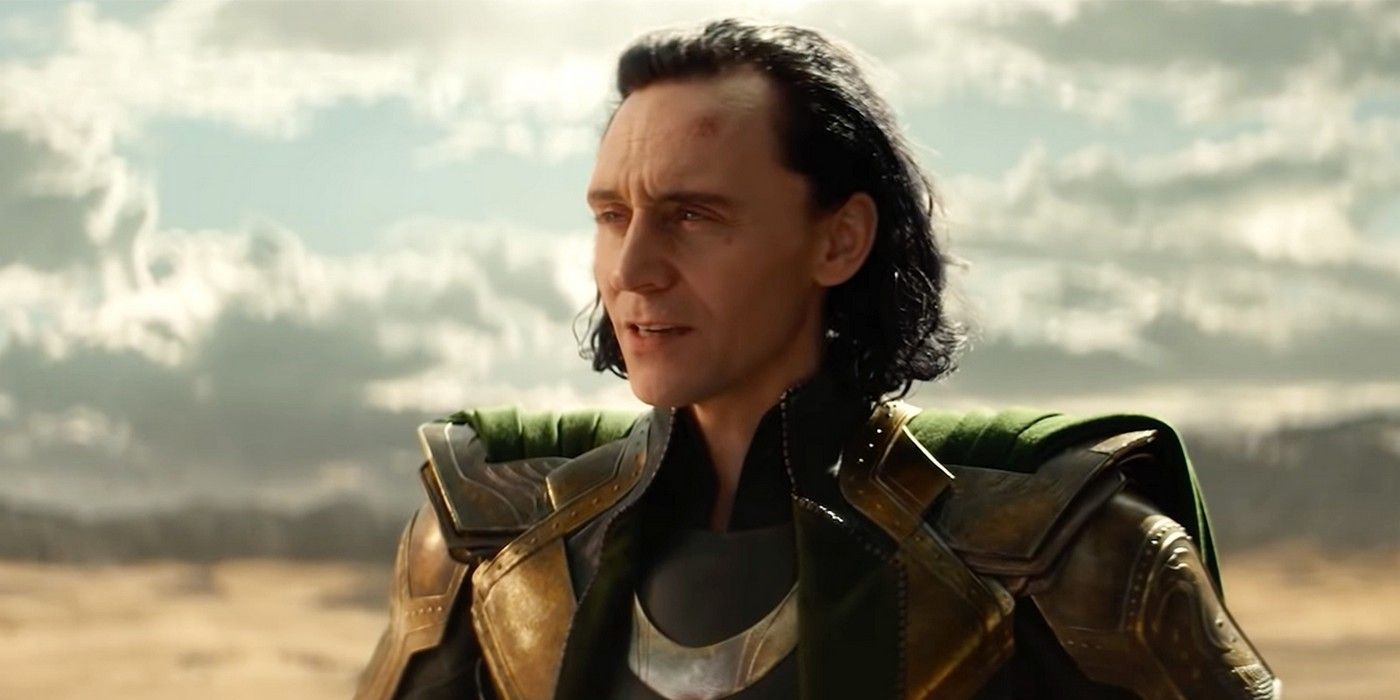
As a man who rarely shuts up, Loki has plenty of wry MCU catchphrases, and one of his most famous would be "I am burdened with glorious purpose" from The Avengers. Disney +'s Loki premiere leans heavily into the line's popularity, with Tom Hiddleston repeating the quote on several occasions throughout the episode, the phrase becoming less sinister with every utterance.
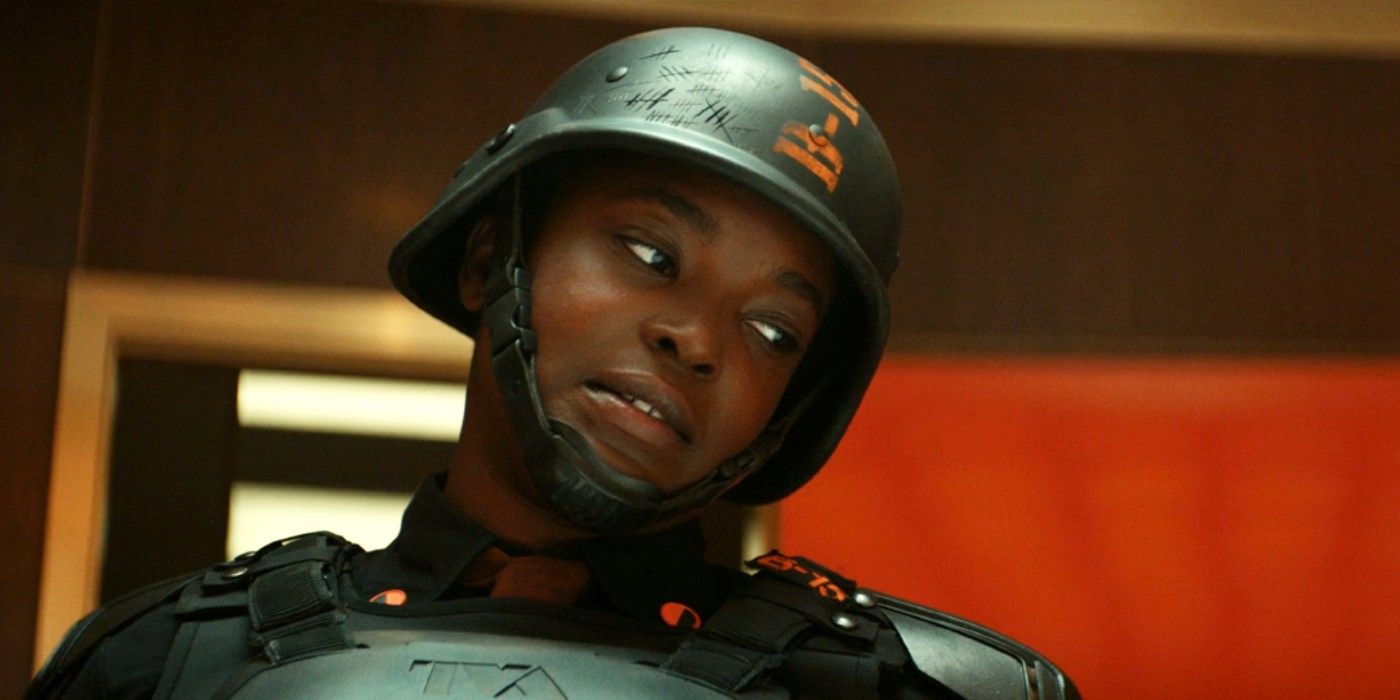
The addition of the TVA to MCU canon was confirmed ahead of time via Loki's trailer and, sure enough, the paradoxical pen-pushers play a prominent part in the premiere. Although their motivations and methods are somewhat altered from the source material (as well as their aesthetic, which now sits closer to The Umbrella Academy's Commission), the TVA hails directly from the Marvel comic books. They were introduced by a 1986 issue of Thor that featured several time-hopping agents, one of which picked a random Earthling up for jaywalking.
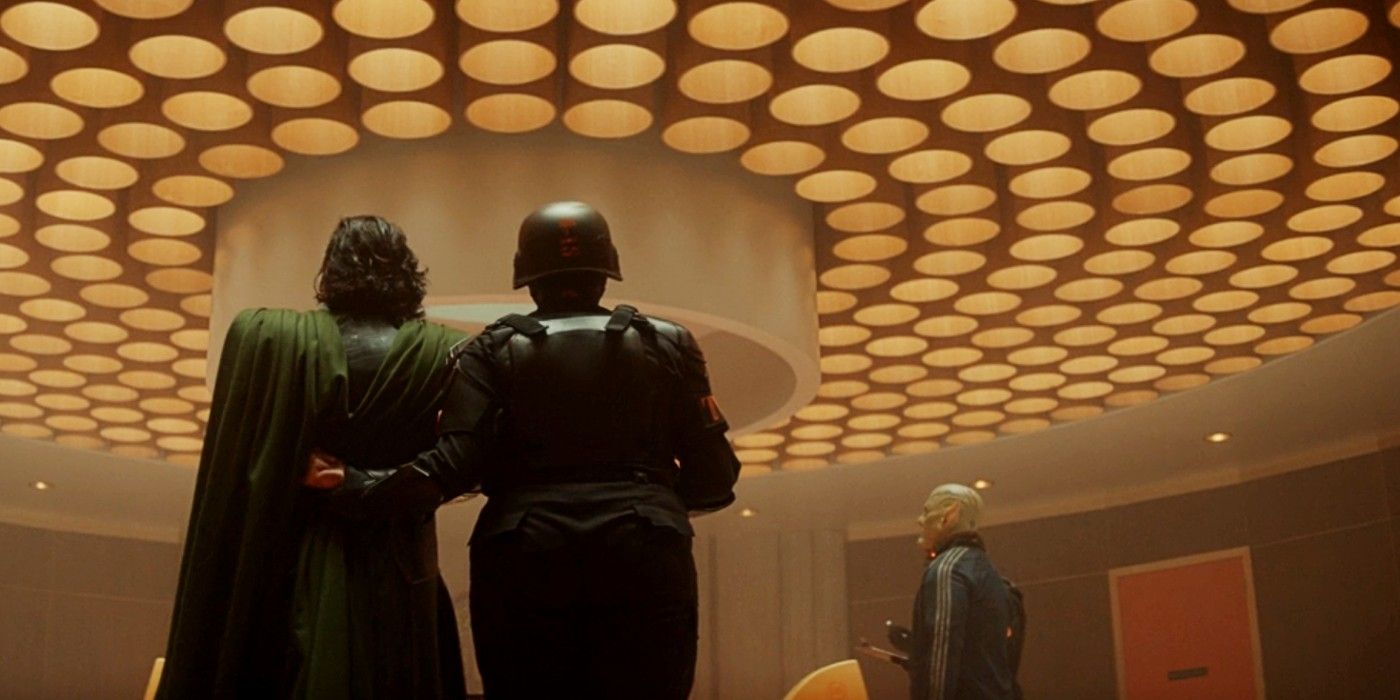
Given their propensity to shape-shift and assimilate the forms of other races, it's not surprising that a Skrull might be lurking around the TVA's front desk. One of the MCU's green aliens can be spotted in the background as Loki gets marched in, and though it's not clear why the Skrull is present, the distinct lack of guards would suggest they aren't a variant. A timely reminder that Secret Invasion is right around the corner.
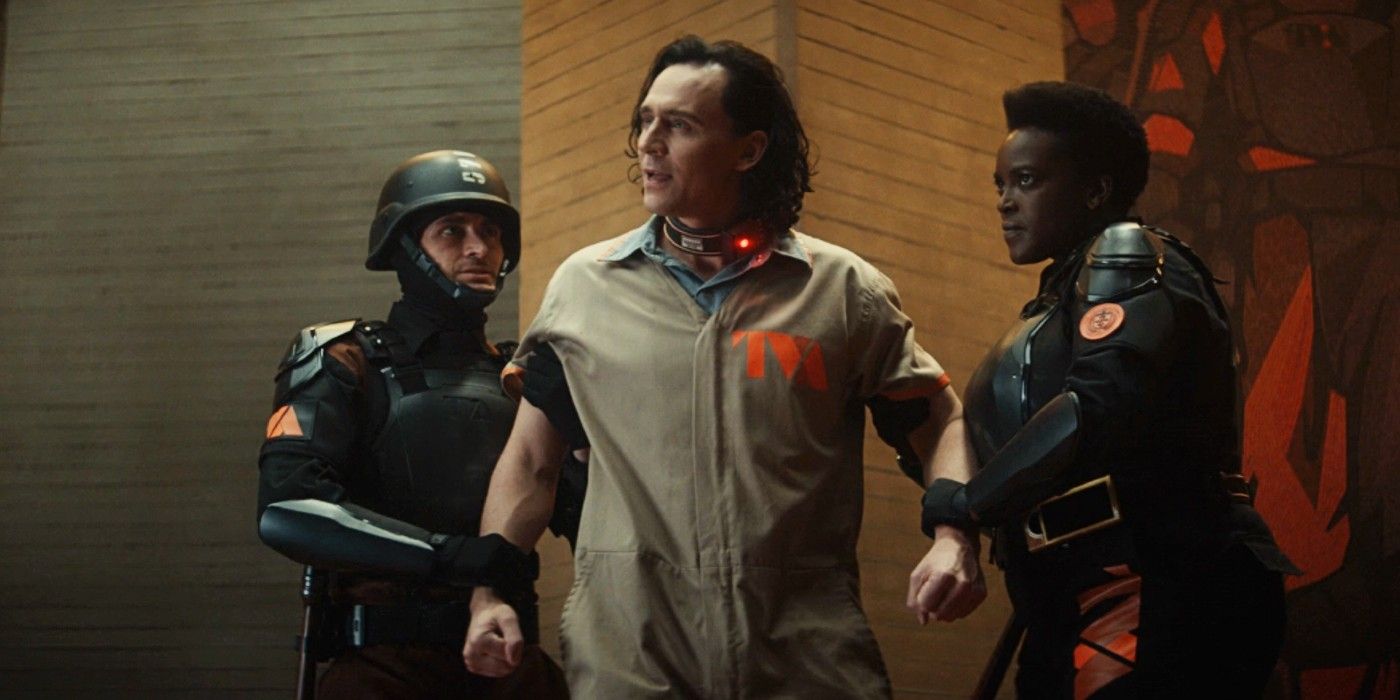
As you'd predict, Loki tries running away. With minimum effort, Hunter B-15 (played by Wunmi Mosaku) clicks a device, and Loki is pulled back to where he stood moments earlier, effectively making escape impossible. These time twisters appear to be standard issue at the TVA, and have a vaguely similar counterpart in the Marvel comics called the Retroactive Cannon. Far more lethal than Loki's little clickers, these devices would rewind a person completely until they were unwritten from history. Like The Algorithm in Tenet, but less confusing.
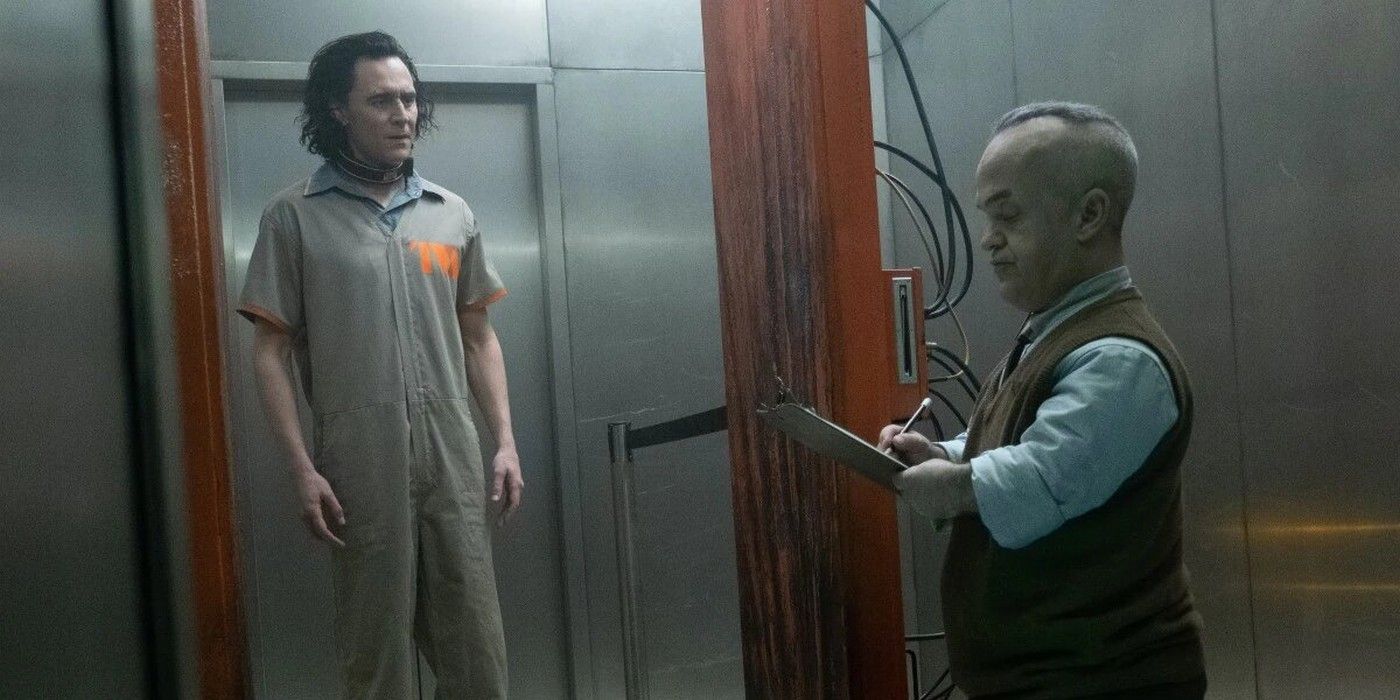
For someone who spent many, many years unaware he was actually a Frost Giant, Loki probably shouldn't be shocked that some people don't realize they're secretly robots. Heading through the TVA's airport scanner, Loki passes the test with flying colors, though he remains perplexed by the idea someone could be unknowingly cybernetic, Loki's line is a nod to Life Model Decoys, which have appeared in both the Marvel comics, and Agents of SHIELD. These lifelike androids can mimic mankind so perfectly, the LMD itself isn't always certain of the truth.
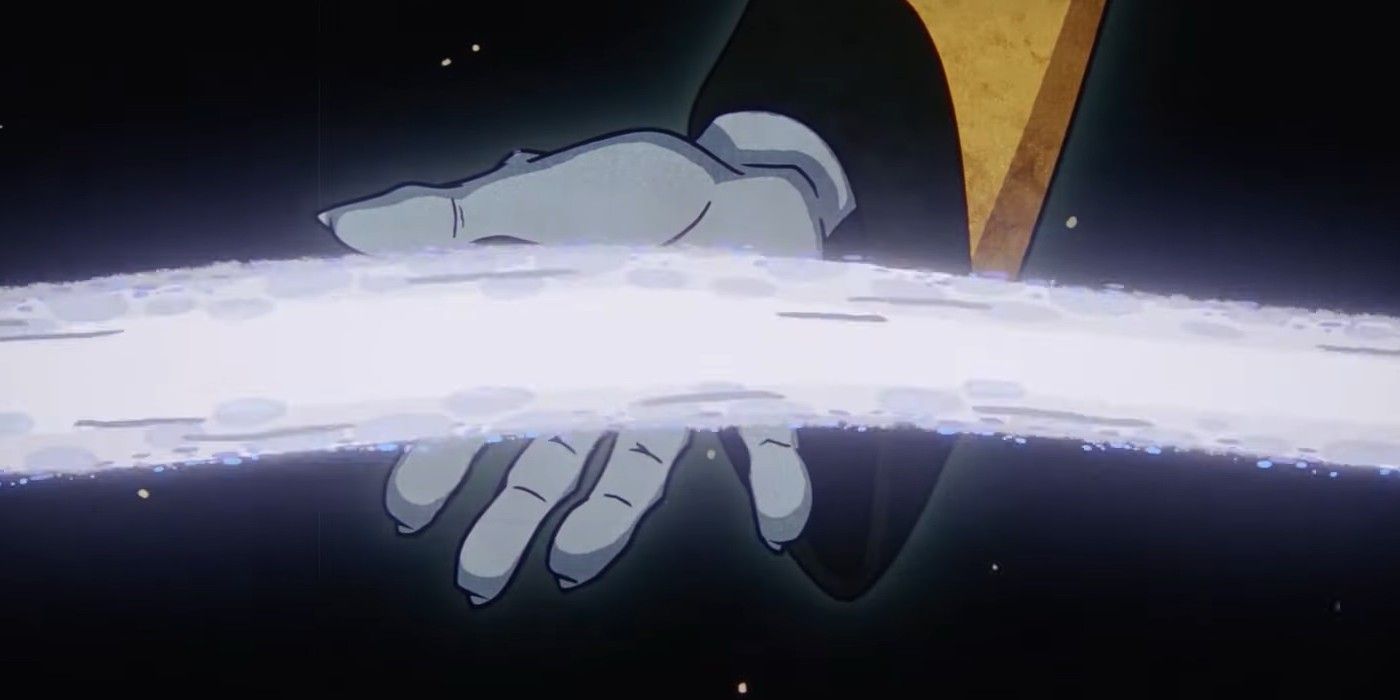
Whether you've accidentally arrived late for work, or just escaped a group of costumed vigilantes by seizing a glowing blue cube from the beginning of time, being labeled as a variant is confusing stuff. Luckily, the TVA has put together a short animation to fill quantum criminals in on the basics. The helpful Miss Minutes finally provides an explanation of the MCU multiverse, revealing how, long ago, separate timelines fought an inter-dimensional war for supremacy that almost resulted in total annihilation. Since then, the TVA has strictly maintained one single reality - the Sacred Timeline *echoes*. The history lesson bears some similarity to 2015's Secret Wars comic event, in which conflicting universes came together in Battleworld (the setting of the original Secret Wars), and attempts were made to streamline Marvel's sandbox.
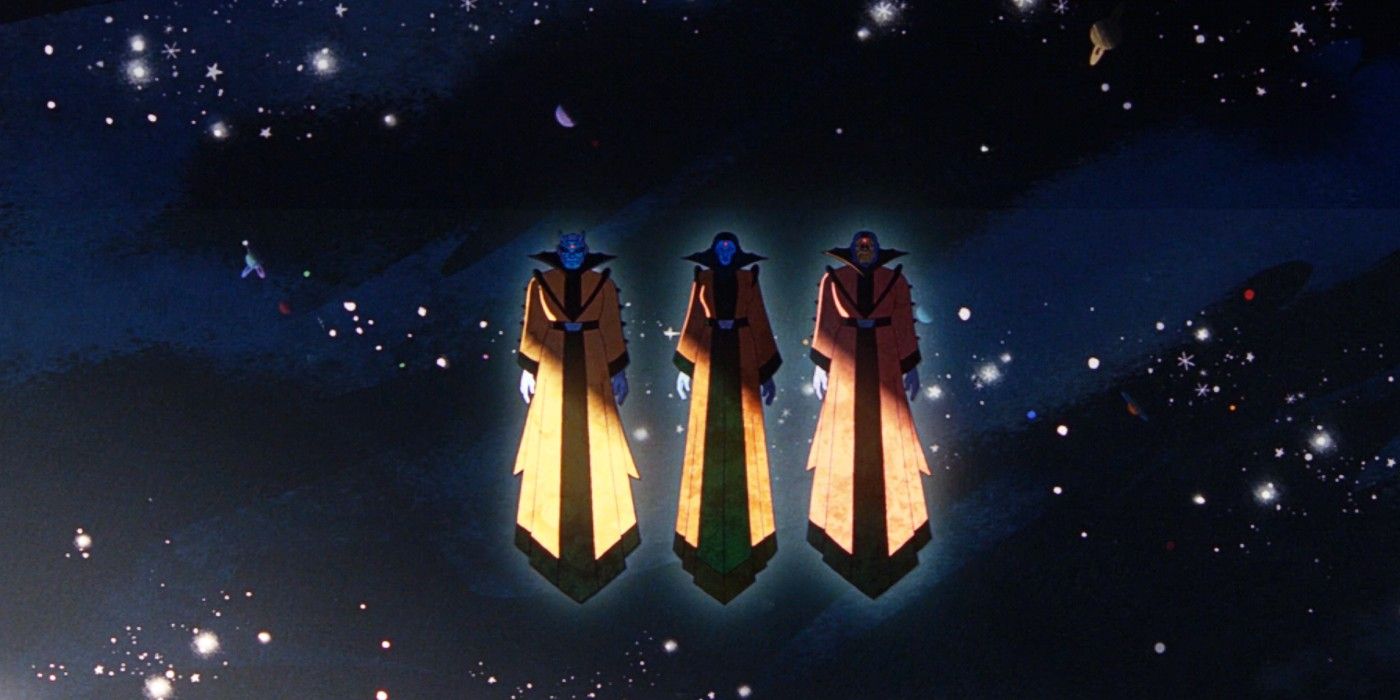
The TVA's infomercial also confirms the organization are led by three Time-Keepers, who oversee the combined reality and dictate the proper flow of history. This big-faced trio were first introduced in the late 1970s, created from the sole remaining survivor of the previous universe's destruction. The mysterious overlords performed much the same function in the comics as they do in Loki, and possessed virtually complete mastery over time.
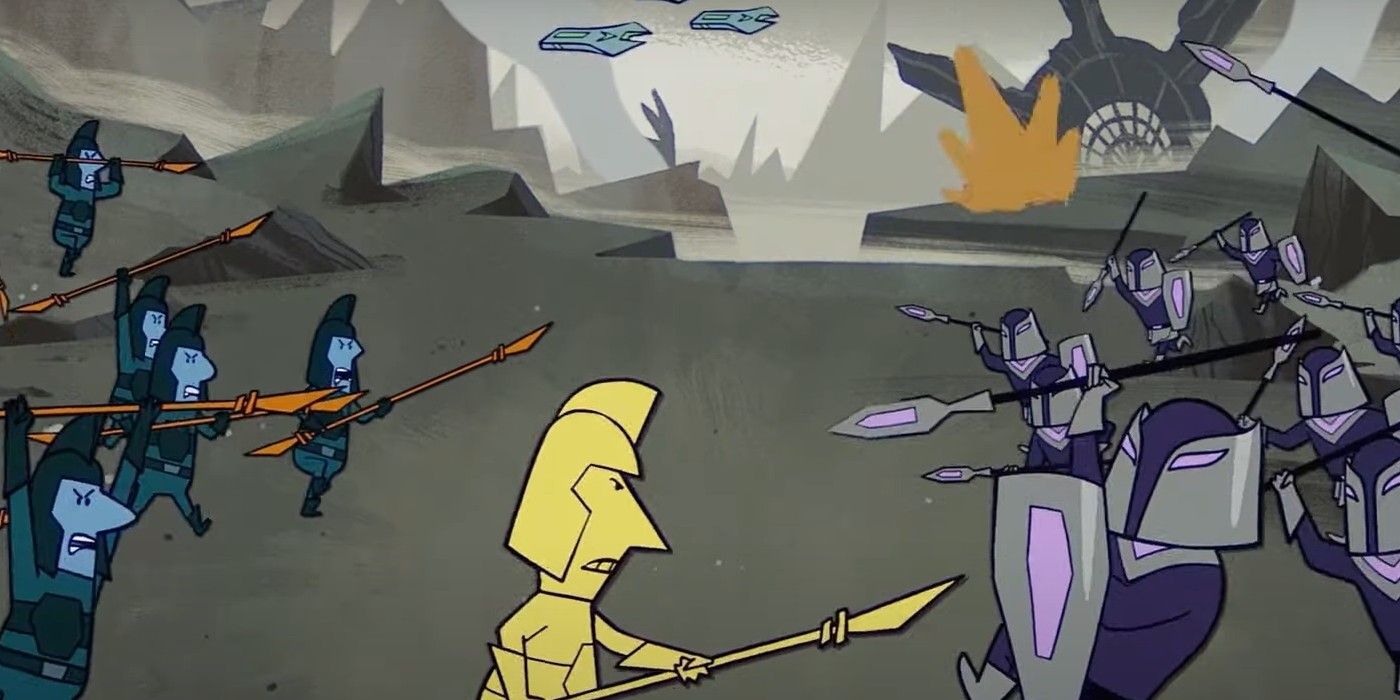
As the animated exposition rumbles on, Miss Minutes (voiced by Tara Strong) uses "starting an uprising" as an example of something the TVA might potentially frown upon. The corresponding image shows two armies clashing, with the blue folk on the left appearing to be Kree, and the force on the right possibly the Nova Corps. Based on the spiky ruins in the background, the battle is taking place on Thanos' home planet of Titan. In Guardians of the Galaxy, Ronan confirmed the Kree and Nova Corps were at war for 1000 years - was the TVA involved somehow?
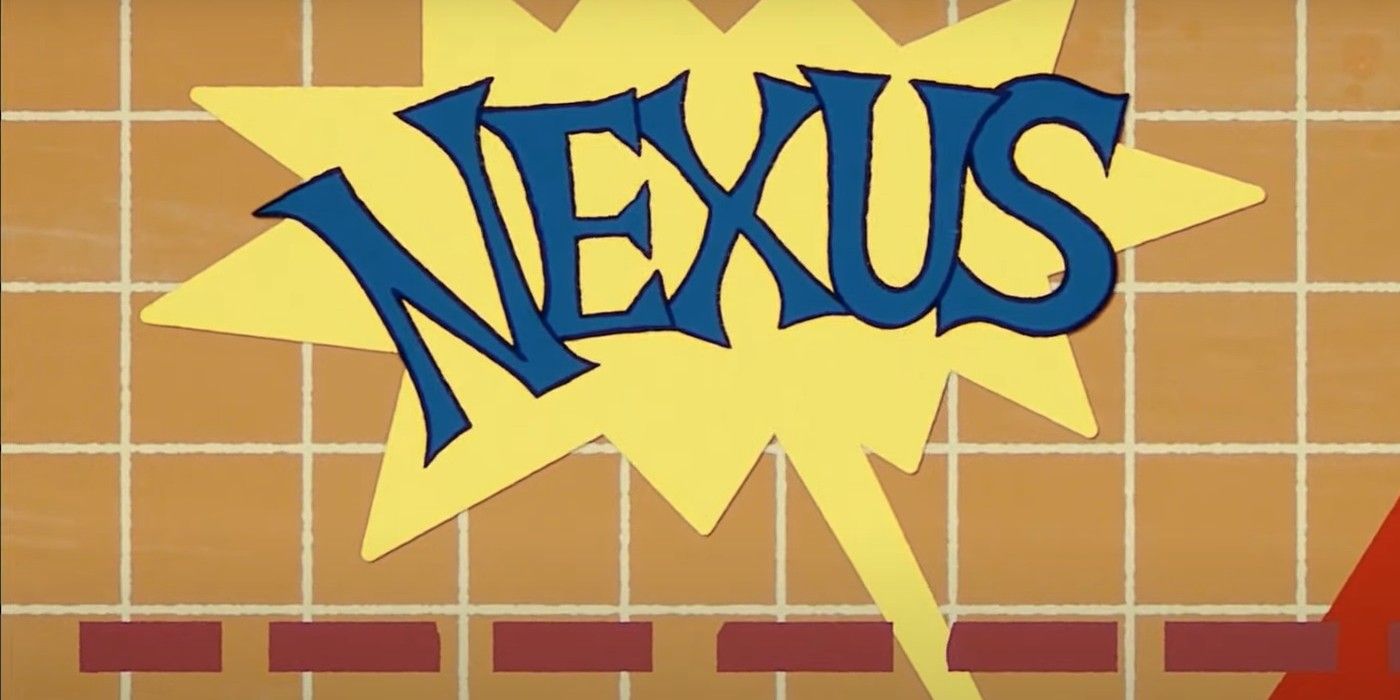
This week's lesson from Miss Minutes explains how stepping off one's designated path can create a "Nexus event," and spiral out of control to spawn countless alternate timelines that trigger another war. This word has cropped up several times in the MCU, first as an internet facility in Oslo (Avengers: Age of Ultron), and then as an antidepressant drug during one of WandaVision's fake commercials. The latter was most likely a reference to the Nexus of All Realities from the Marvel comics, which is essentially a gateway between every possible timeline. The TVA's Nexus events could take their name from the very same source.
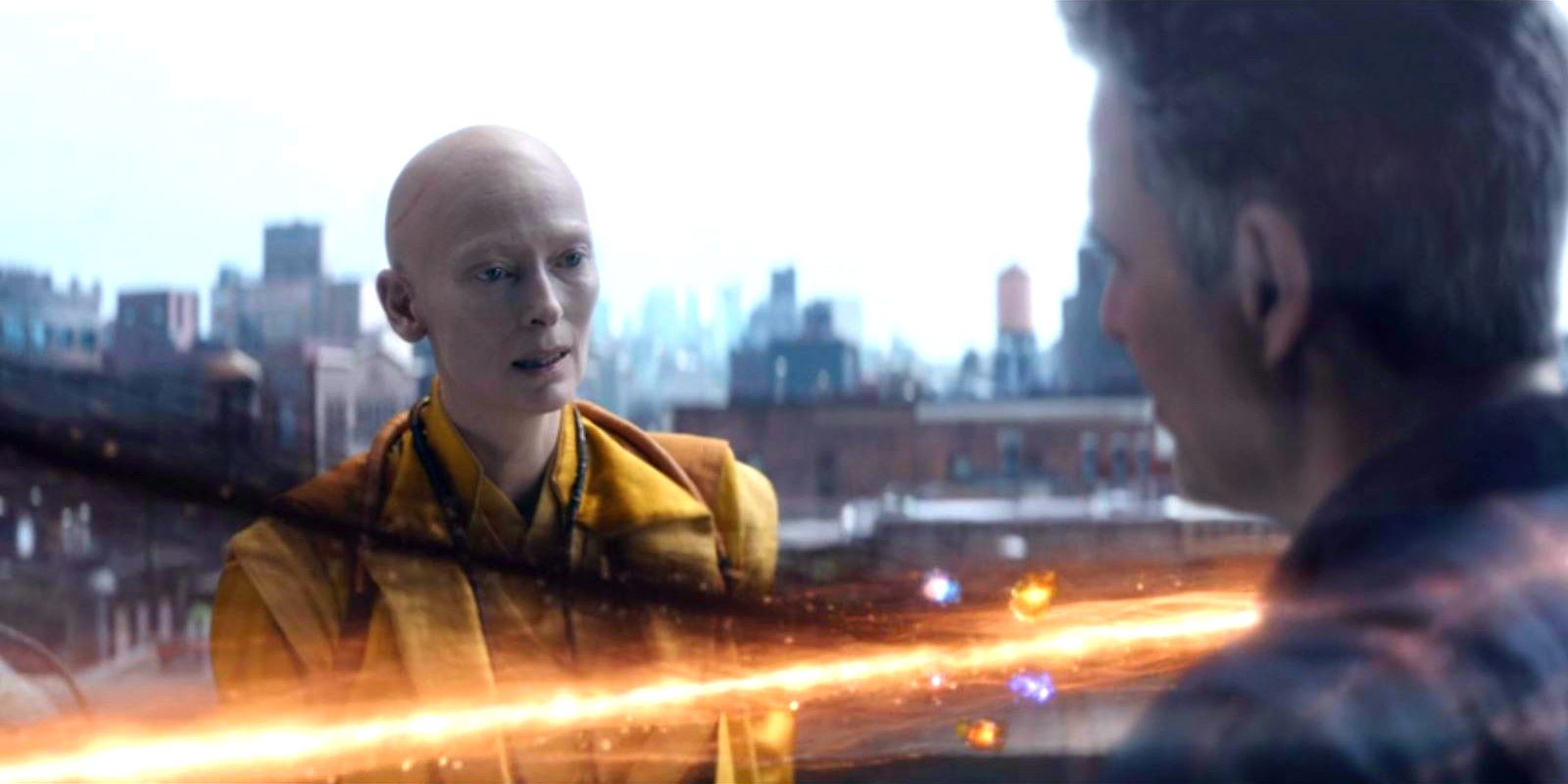
Throughout Loki's Disney+ debut, the TVA repeatedly use diagrams of a single flowing timeline with branches shooting off to represent unwanted deviations. MCU fans might recognize this from Avengers: Endgame, where the Ancient One drew something extremely similar while explaining the consequences of time travel to Bruce Banner. Perhaps Ms. One has visited the TVA herself once or twice?
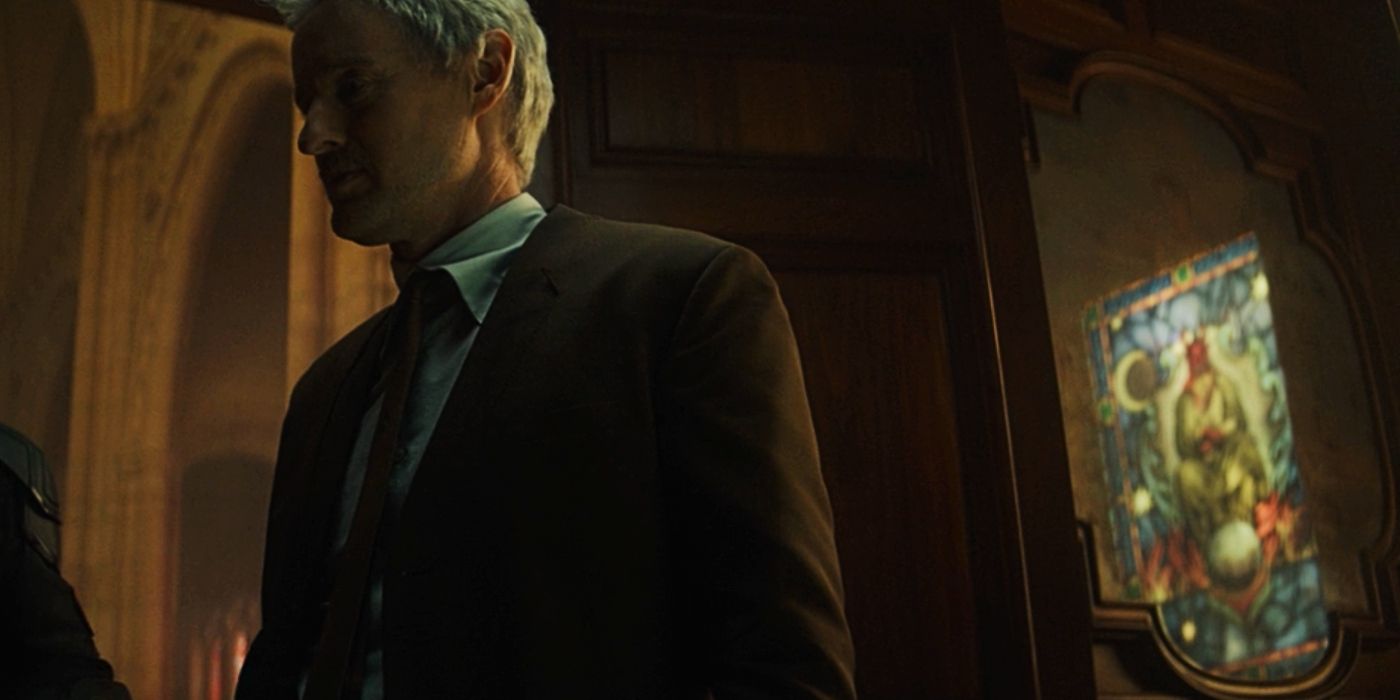
MEPHISTO. There, we said it. When Mobius asks a young girl who committed time crimes in 16th century France and the child points to a stained glass window depicting the Devil, Loki knew exactly what it was doing. WandaVision dropped several hints that Marvel's own Satan would appear, all of which proved fruitless, and Loki seems to be heading down the same hellish vein. Alas, there could be a simpler explanation. Mobius claims to be chasing an alternate version of Loki, and it's highly likely the child has mistaken the God of Mischief's famous horned helmet for the demonic horns of Lucifer.
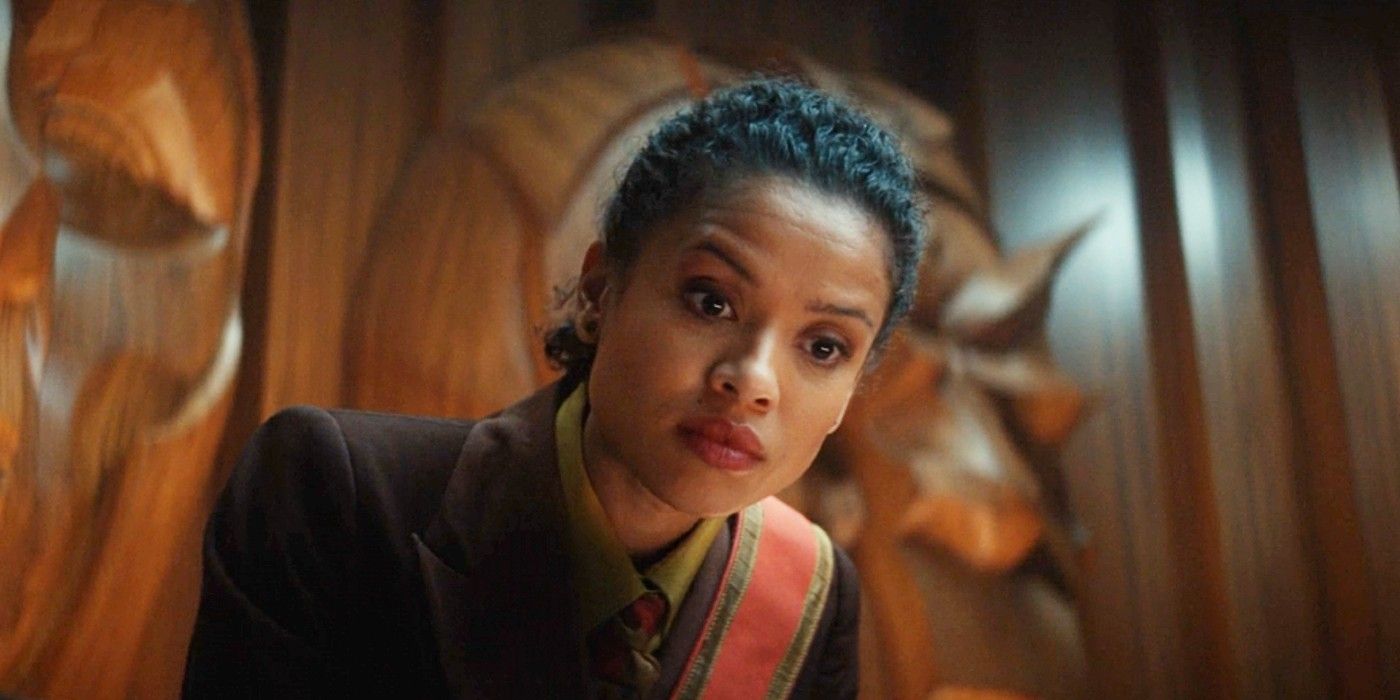
Though her name isn't mentioned in Loki's premiere, Gugu MBatha-Raw's TVA judge is actually Ravonna Renslayer, who made her debut in a 1965 Avengers issue. In the comics, Renslayer is a human from the far future, most often a villainous figure associated with Kang the Conqueror. She certainly isn't a legal official sat behind a desk. One would imagine Marvel Studios has something more interesting in store for Renslayer further down the line.
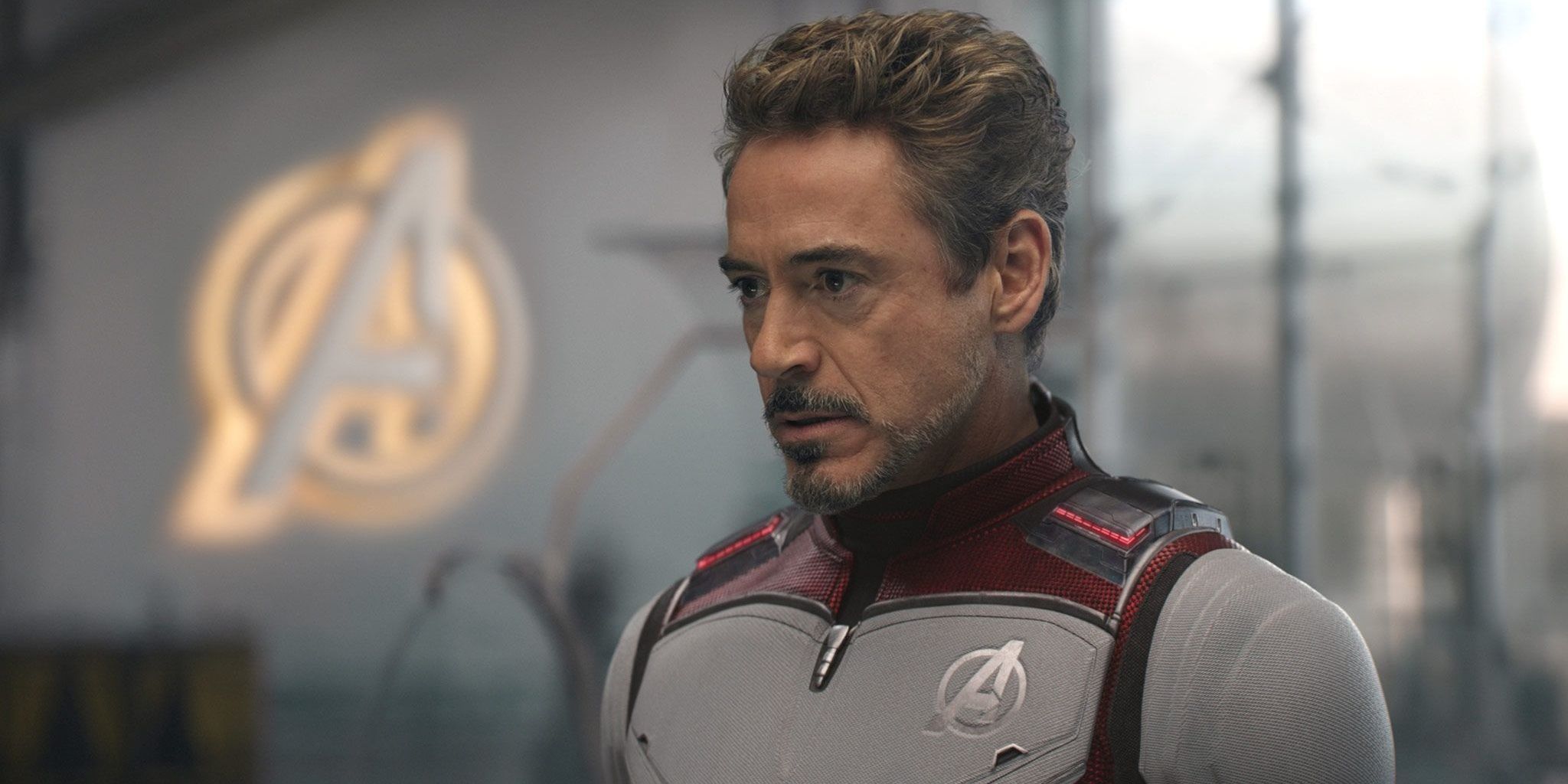
During his TVA interrogation, Loki quite rightly points out that it was not he who meddled with the timeline. T'was those pesky Avengers who penetrated the Quantum Realm and disrupted the natural course of events in the aftermath of the Battle of New York; Loki merely picked up the Tesseract that fell at his feet. Unfortunately, this excuse falls on deaf ears, as Gugu MBatha-Raw confirms the Avengers' ambitious time heist was entirely sanctioned by the Time-Keepers. This exchange more or less clears up every single timeline wrinkle in the MCU, including Steve Rogers' reunion with Peggy, and Gamora from the past staying in the present. It's not altering time that irks the TVA; it's altering time in a manner the Time-Keepers haven't permitted.
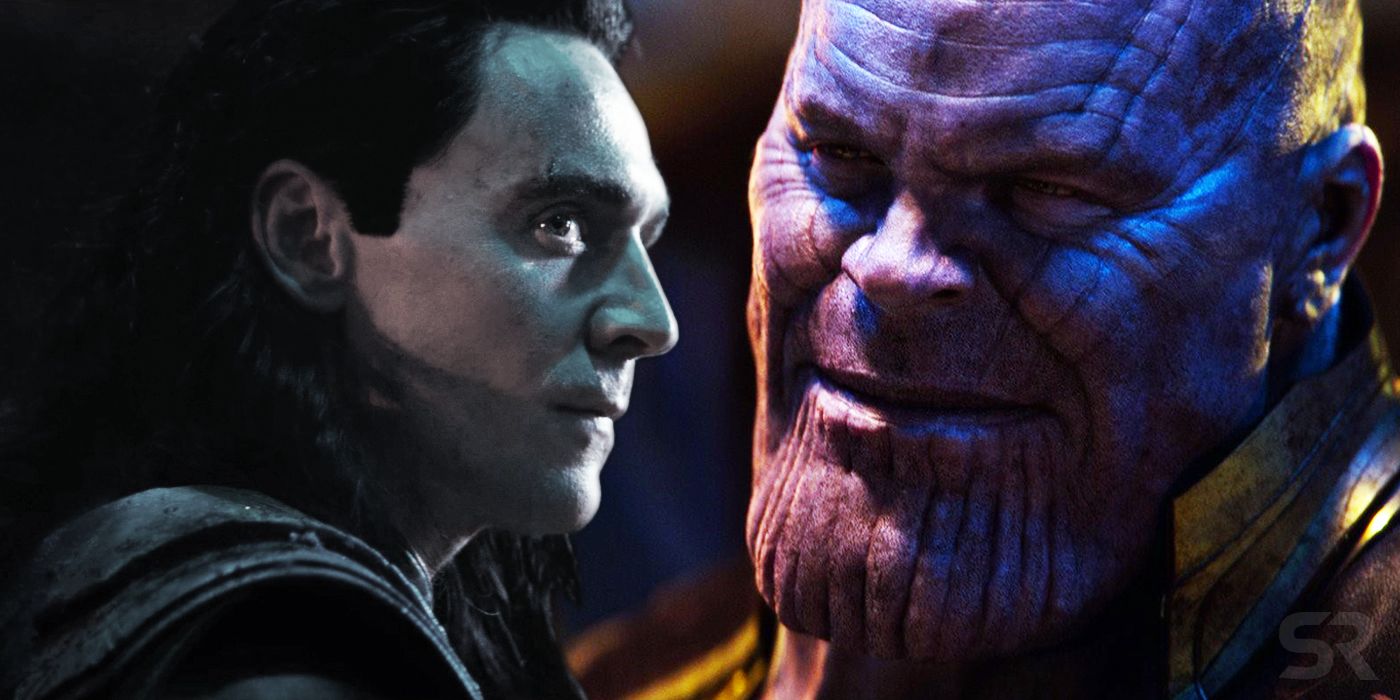
After Owen Wilson saves Loki from being "reset," the pair sit down for a more friendly conversation, but when Loki warns Mobius that cooperation isn't an option, the TVA officer retorts with, "even when you're wooing someone powerful you intend to betray?" Loki has betrayed a fair few people during his time, and Mobius' accusation could easily apply to Odin or Thor. Most likely, however, Mobius is alluding to Thanos here - a powerful figure Loki tried buttering up with intent to usurp him once the universe was brought to its knees.
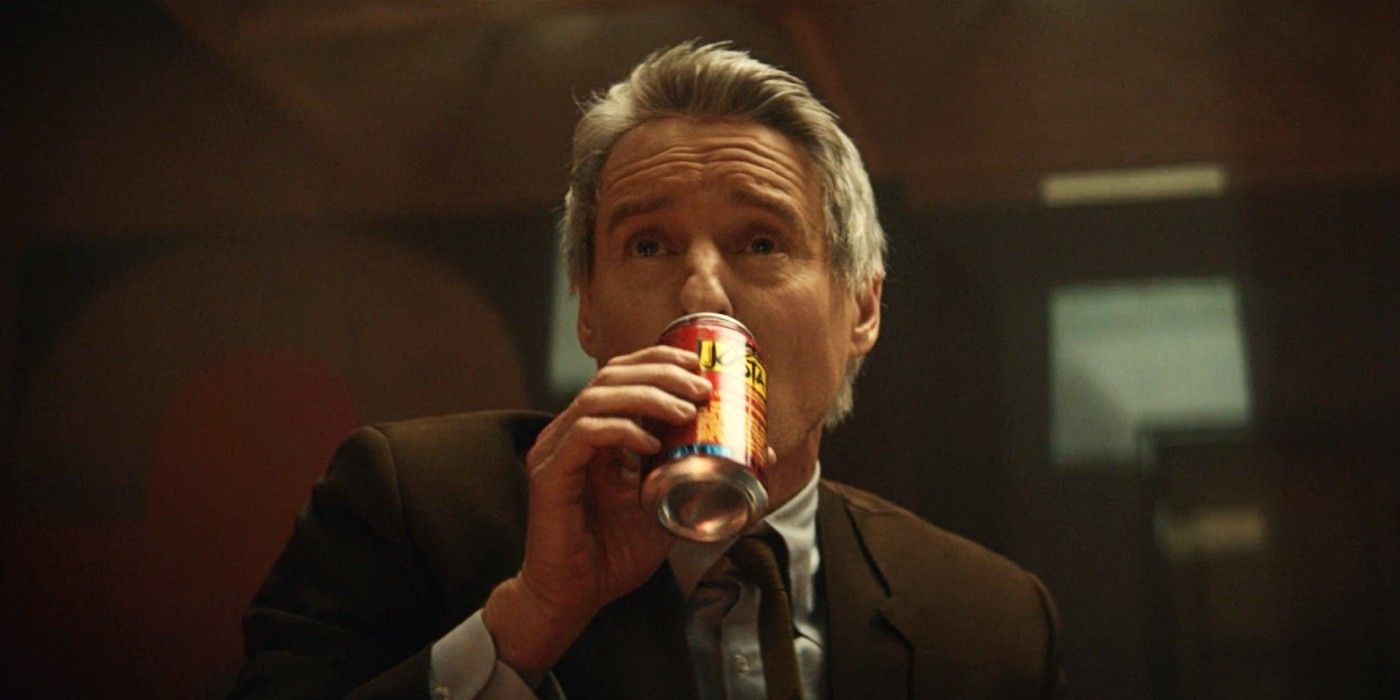
While not strictly a Marvel reference, it's worth noting that Mobius is a big fan of an ice cold Josta. Viewers of a certain age might not recognize this soda brand, but Josta is a genuine Pepsi product that was available in the late 1990s before being discontinued. An early variety of energy drink, there's evidently a few perks to hunting down timeline criminals. In Mobius' case, this includes sugary contraband.
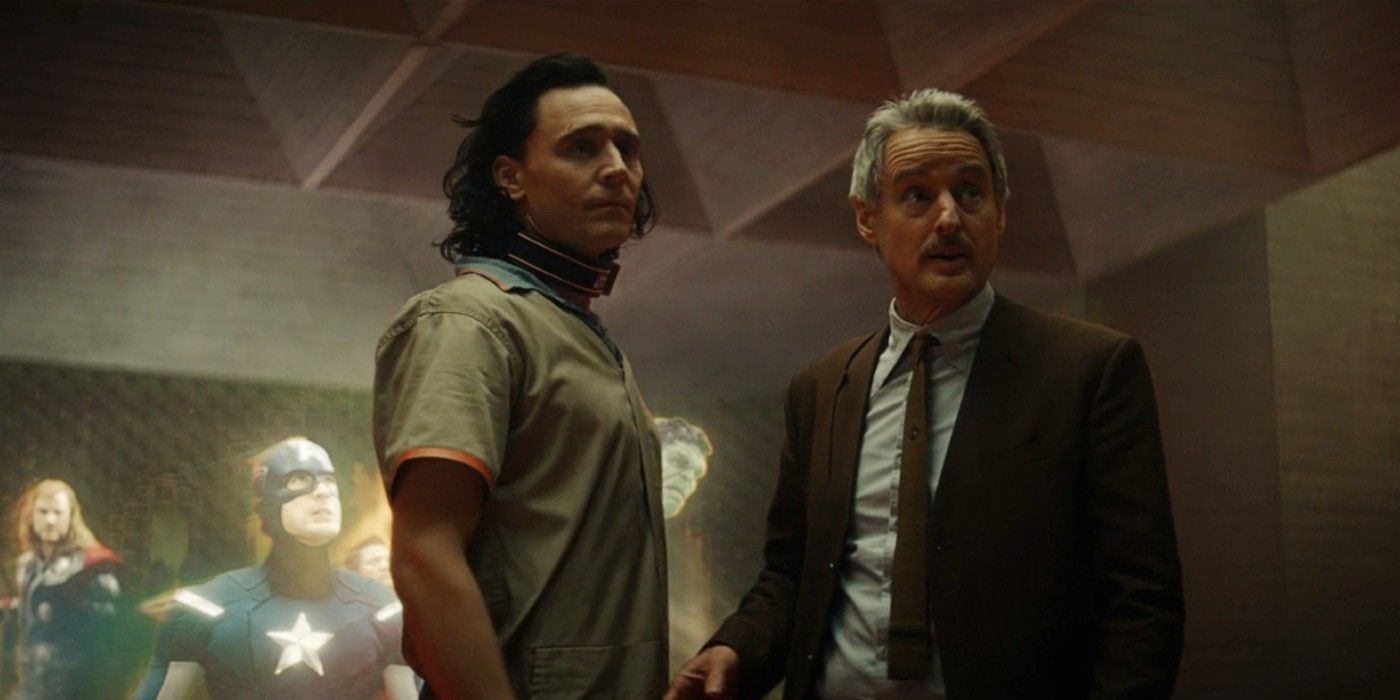
In a twisted version of It's A Wonderful Life, Mobius tries to change Loki by examining his choices in the past, present and future. Unlike the jaunty 1946 holiday classic, Mobius has access to a handy hi-tech screen which displays Loki's "greatest hits." The footage begins with the God of Mischief's defeat and arrest in 2012's The Avengers - perhaps not an entry Loki himself would've picked for the highlight reel. The screen next switches to Phil Coulson's death (which Loki definitely would pick), before moving on to images of civilian deaths from the Battle of New York, the gala eyeball removal scene, and the dictator speech, all from The Avengers.
Switching over to side B, Loki's life story begins playing out the MCU timeline as it should be, beginning with scenes from Thor: The Dark World - Loki being taken to jail, the secret conversations with Frigga, and Loki indirectly causing his mother's death. There's a quick skip back to the Avengers finding the "best versions of themselves" in 2012, before the movie is interrupted by B-15.
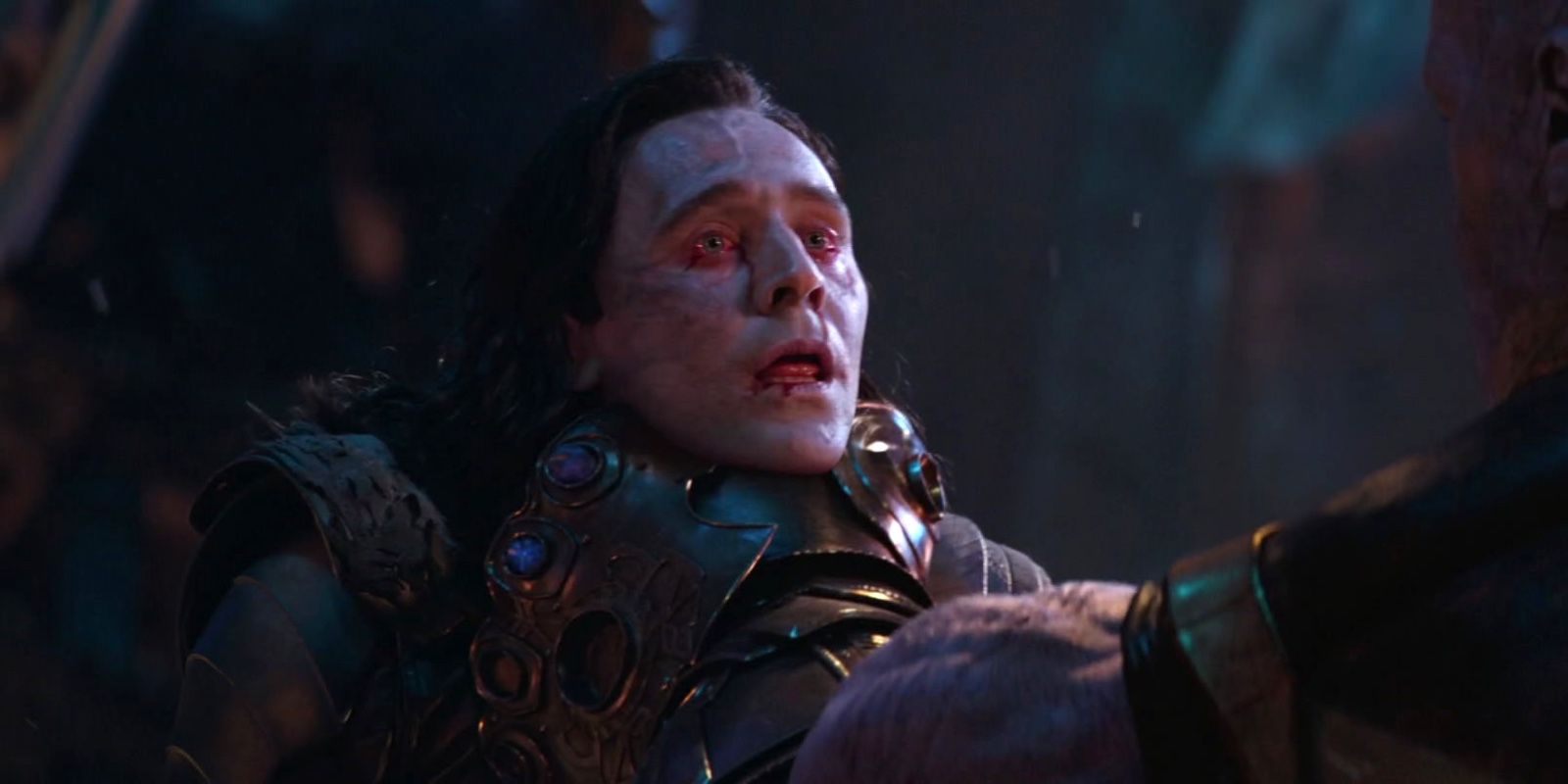
Showing zero fear in the presence of Odin's son, Mobius accuses Loki of losing "a lot" and suggests the habit might simply be his nature. Certainly, Mobius isn't wrong. Loki found himself tasting defeat in Thor, The Avengers, Thor: Ragnarok and Avengers: Infinity War... although not all of those have happened yet from this Loki's perspective. Loki warns his interviewer what happened to the "last person who said that," harking back to The Avengers, where a dying Phil Coulson bravely assured Loki that his superhero team would emerge victorious in the end.
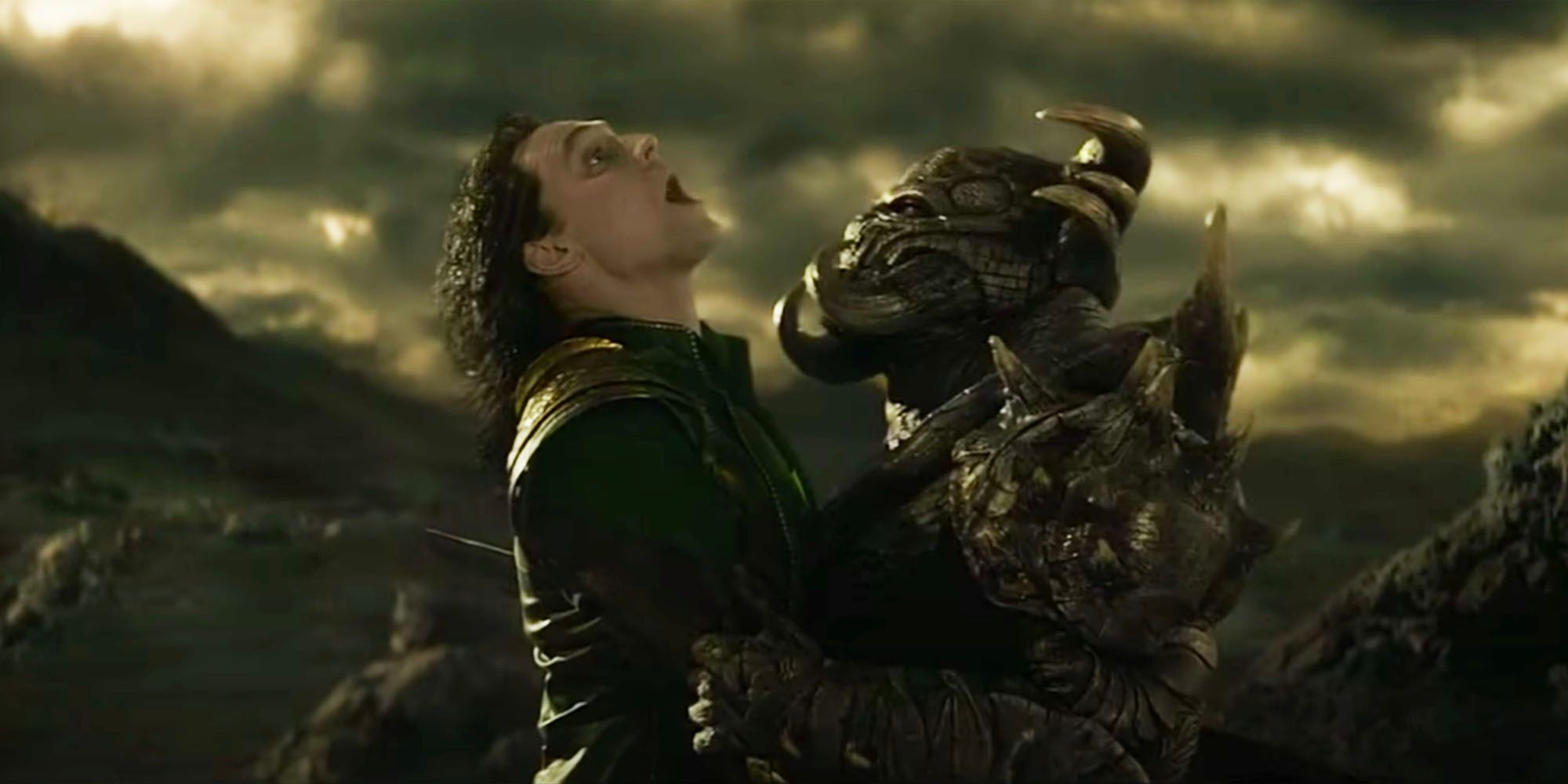
In true "bad news sandwich" style, Mobius follows up criticism of Loki's win-loss record by complimenting the prisoner's excellent habit of escaping. Though not listed in the episode itself, these remarkable liberations include faking his own death in Thor, faking his own death in Thor: The Dark World, and faking his own death in Avengers: Infinity War (possibly).
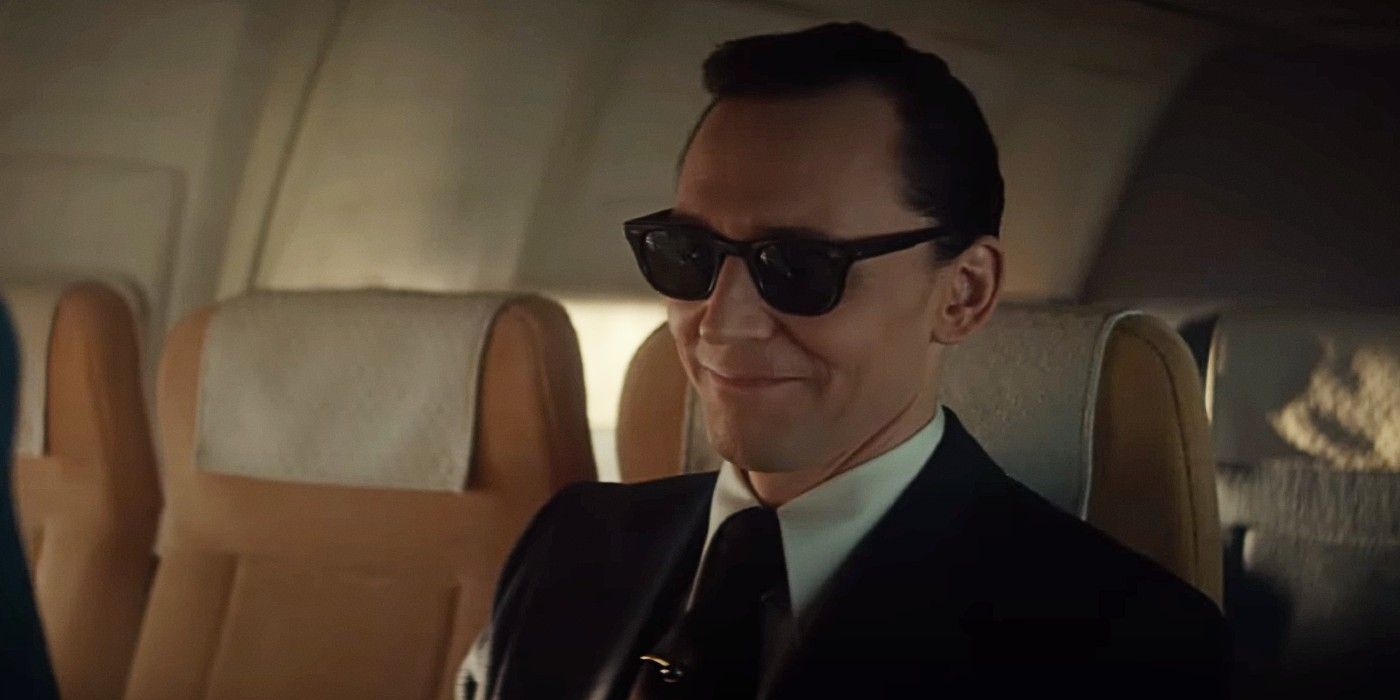
More an Easter egg from real-world history than Marvel lore, Loki reveals the truth about D.B. Cooper - it was Agatha Loki all along! In 1971, an as-yet-identified man boarded a Boeing 727, held the aircraft ransom for $200,000, then parachuted out with the cash. Mobius' dive into Loki's past reveals that, thanks to a lost bet with Thor, the God of Mischief descended from Asgard to pull the plane heist himself as some kind of stunt. From Loki's hairstyle matching the real D.B. Cooper artist's impression to the smattering of bank notes left behind, there's an impressive attention to detail in this scene.
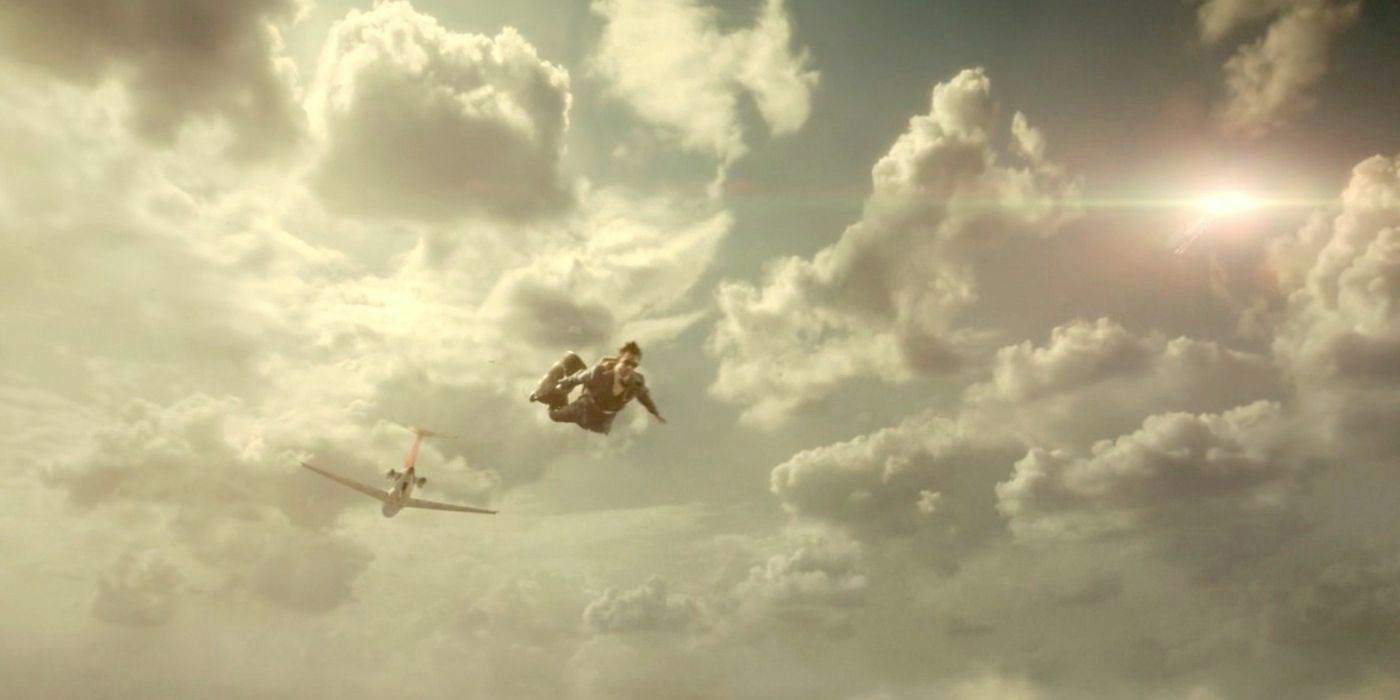
It remains to be seen how much of Loki's Asgardian heritage and MCU history will make its way onto Disney+. The opening episode is rather thin on the ground in this regard, with much of the Asgard action limited to repurposed footage from previous MCU releases. Happily, "Glorious Purpose" does feature one major Asgardian addition. Though maybe not as exciting as a cameo from Chris Hemsworth or Idris Elba, the D.B. Cooper sequence does include a cool Bifrost moment, with Asgard's famous rainbow bridge catching a falling Loki in midair. Apparently, Heimdall was in on the ploy, and the mental image of Elba's super-serious gatekeeper giggling with Thor while Loki holds up a plane is a hilarious visual that, sadly, will never be realized in live-action.
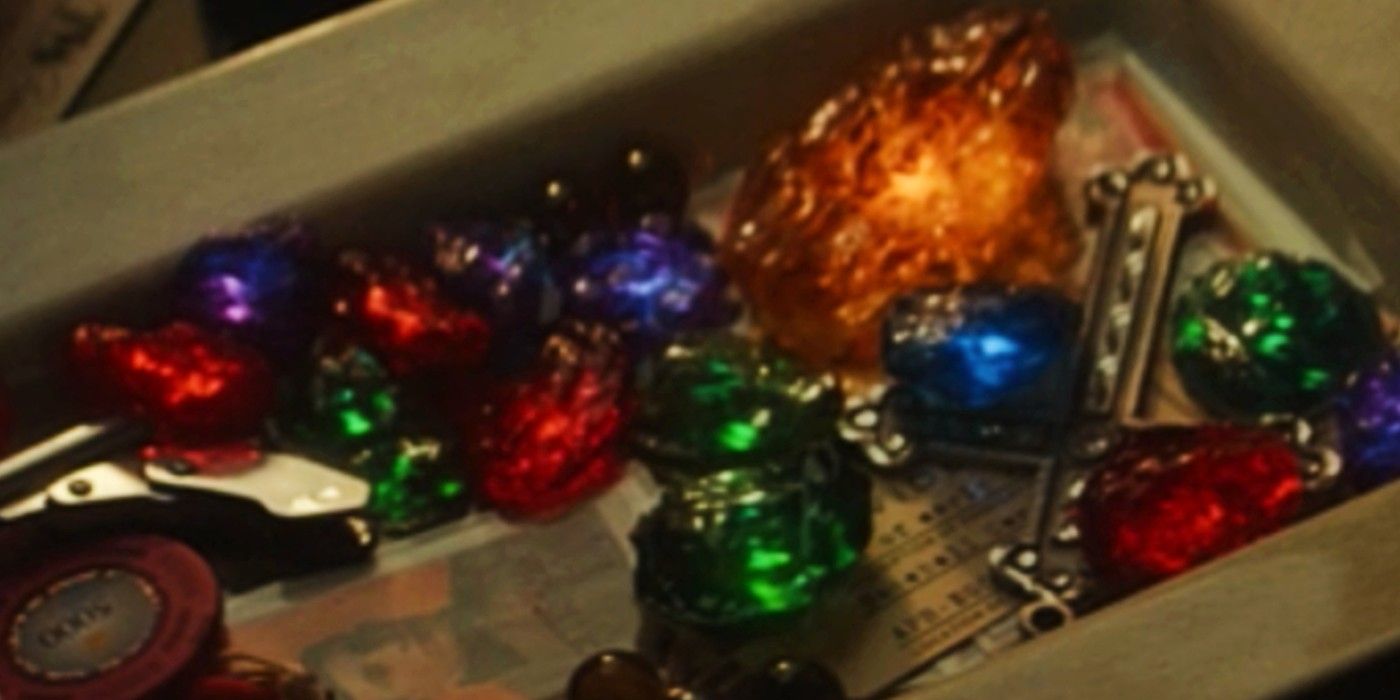
The Infinity Stones... Thanos would give his own daughter just for one. Entire worlds brought to their knees by their power. Humans turned into Gods at the merest touch. Gary from the TVA's HR department using one as a paperweight. Threatening Casey with a fishy demise, Loki finally gets his hands back on the Tesseract, only to discover even Infinity Stones are useless within the TVA's jurisdiction. To Loki's immense surprise, Casey's desk draw is chock-full of discarded Infinity Stones, most either of the Time or Reality variety (no surprises there). The scene essentially confirms that the power of these fabled jewels has led to more than a few timeline variant incidents over the years, but perhaps also undermines the once-unstoppable power of the Infinity Stones. Well, the Infinity Saga is over.
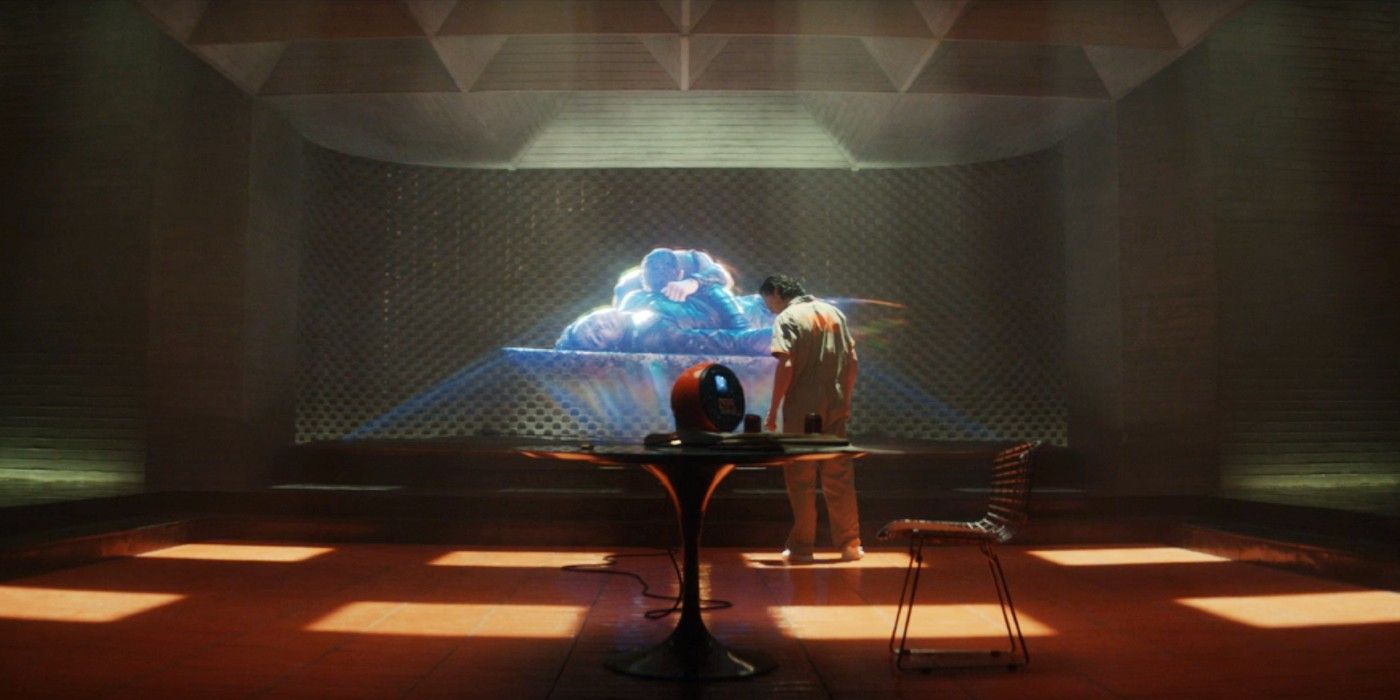
Unable to resist glimpsing into his future, Loki un-pauses Mobius' film. First, he witnesses the final moments of Odin from Thor: Ragnarok, followed by reconciliation with Thor in the aftermath of Hela's defeat. But it's the sight of being brutally murdered by Thanos that really hits hard for Loki. At this point in his supervillain career, Tom Hiddleston's character would've only recently joined Thanos as an ally, so viewing the sour end to that relationship on-screen is an understandably profound moment for even the iciest heart.
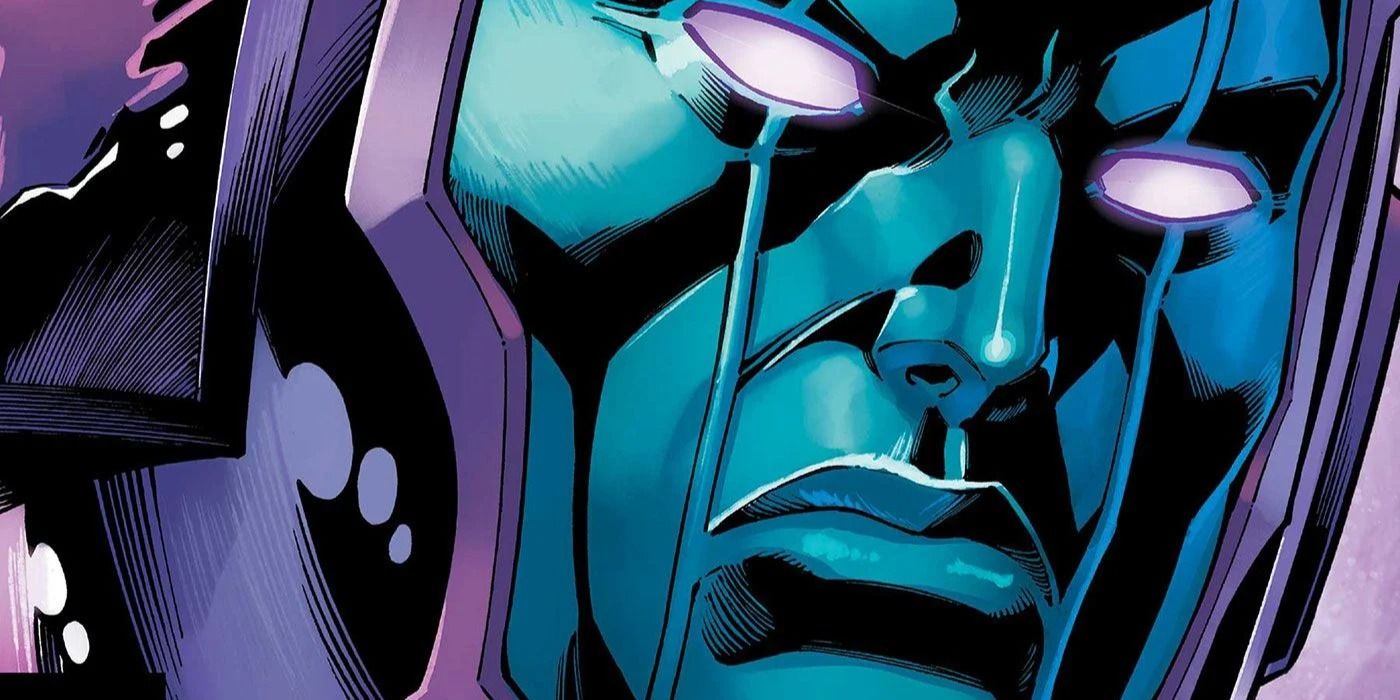
In its final scene, the Loki premiere might just be hinting at the future villain of Ant-Man & The Wasp: Quantumania. The MCU will soon introduce Kang the Conqueror, a major comic book baddie played by Jonathan Majors, and "Glorious Purpose" could represent the first step toward his arrival. Called out to 19th century Oklahoma, TVA agents find a piece of technology hailing from the 3rd millennium. Though it might be a coincidence, Kang hails from the 31st century, and is known for using advanced tech in his dominion of the timeline. The mysterious hooded figure is more likely a Loki variant than Kang himself, but since Ant-Man & The Wasp: Quantumania and Loki both deal in temporal themes, it wouldn't be strange for the Kang foundations to be laid on Disney+.
from ScreenRant - Feed https://ift.tt/3w8JTnR

0 Comments